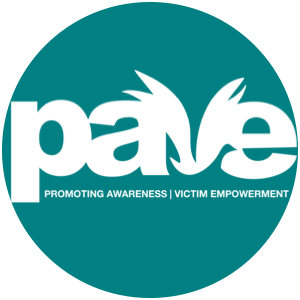Why didn’t you fight back?
TW: sexual violence
Why didn’t you fight back? It’s a question many survivors face. It seems so simple—you get attacked, and you fight back. Well, it’s not that simple.
Terry Crews is a former NFL athlete and actor known for his roles in Brooklyn Nine-Nine, White Chicks, and America’s Got Talent. In 2017, Crews spoke out in response to the abundance of sexual harassment allegations against Harvey Weinstein. In a Twitter thread, Crews said, “This whole thing with Harvey Weinstein is giving me PTSD. Why? Because this kind of thing happened to ME. My wife n I were at a Hollywood function last year n a high level Hollywood executive came over 2 me and groped my privates. Jumping back I said What are you doing?! My wife saw everything n we looked at him like he was crazy. He just grinned like a jerk. I was going to kick his ass right then— but I thought twice about how the whole thing would appear. ‘240 lbs. Black Man stomps out Hollywood Honcho’ would be the headline the next day. Hopefully, me coming forward with my story will deter a predator and encourage someone who feels hopeless” (Crews, 2017).
Crews’ story took place in 2016—he and his wife, Rebecca King-Crews, were at an industry party when Hollywood executive Adam Venit began staring at him, making “overly sexual” moves with his tongue. Crews detailed that he went to shake Venit’s hand, but Venit grabbed his hand and used it to squeeze Crews’ genitals. Crews questioned Venit, then pushed him back. Venit then began laughing (Eltagouri, 2017).
Crews described how he felt at that moment, “I have never felt more emasculated, more objectified. …I wake up every morning wondering, ‘Did this really happen?’” (Eltagouri, 2017).
Crews was filled with rage, feeling like he “could punch a hole in [Venit’s] head.” But he didn’t fight back. Crews said he is aware that if he, a Black man, physically confronted Venit, he would “immediately be seen as a thug” (Eltagouri, 2017).
Since then, Crews has become an advocate for survivors and has received an abundance of support. He explained his decision to share his story, “it freed me. I knew, instantly, that I had to tell my story, so that other people can be free” (Rothman, 2018). He was very thoughtful in his decision to speak out; he understood what it meant for him and those around him. In his words, “What kind of man would I be to tell my kids, ‘if someone touches you where you don’t want to be touched, tell someone,’ and then I don’t do it?”
Nonetheless, some discredited his story. In an interview with Vlad TV, comedian D. L. Hughley said it was difficult to believe that “a dude with all those muscles can’t tell an agent to not touch his ass” (Rogo, 2020).
In response, Crews tweeted, “You told the world ‘God Gave Me Muscles So I Could Say No…’ Are you implying I “wanted” to be sexually assaulted? I’m listening, sir…” (Rogo, 2020).
Crews received many similar messages, mocking him and discrediting his story—even from people he expected to back him up, like 50 Cent and Russell Simmons. And each time, Crews was quick to defend himself. On Good Morning America, Crews stated that he understands why many victims don’t come forward; they’re up against powerful figures and fear people won’t believe them. Crews discussed the victim-blaming he faced as a result of coming forward, “the whole deal with people asking, ‘why didn’t you do this?’, you know why don’t you ask Adam Venit about what he’s doing?” (Rothman, 2018).
The backlash Crews faced is a direct result of toxic masculinity. According to society, men are supposed to be big and strong; they fight back. They’re not weak, and they’re most certainly not victims. Crews stated, "This is what toxic masculinity is. People think, ‘Look how big you are, look how strong you are. If I was you, I would've killed him.’ But my body's not for killing” (Rothman, 2018).
That’s why Crews is on a mission to eradicate toxic masculinity. He hopes to not only end abuse but to end the tolerance for abuse. Survivors are tired of being questioned. Why didn’t you speak out sooner? Why didn’t you report to the police? Why didn’t you just fight back?
It isn’t that simple.
Crews is a role model for not only his children but for his fans and for survivors everywhere. He shared his truth, knowing the consequences he could face speaking out against a powerful figure in Hollywood. He continues to fight for what he believes in. He openly supports survivors and backs them up when they face backlash of their own. Thank you Terry Crews for saying “fuck you” to toxic masculinity and fighting for survivors.
Sources:
Eltagouri, M. (2017, November 15). 'I will not be shamed': Actor Terry Crews details his alleged sexual assault. The Washington Post.
Rogo, P. (2020, December 6). Terry Crews Blasts D. L. Hughley for Mocking His Alleged Sexual Assault. Essence Magazine.
Rothman, M. (2018, November 29). Terry Crews on why toxic masculinity needs to be completely eradicated from our culture. Good Morning America.
Terry Crews [@terrycrews]. (2017, October 10). This whole thing with Harvey Weinstein is giving me PTSD. Why? Because this kind of thing happened to ME. (1/Cont.) [Tweet]. Twitter.
